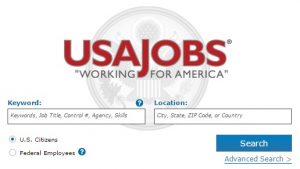Still Undecided? What Bar Exam to Take If You Are
Posted: November 30th, 2015
It’s a question that many students have, particularly when entering their 3L year: what state bar exam do you choose if you are still undecided? Choosing a state bar exam is a deeply personal decision and may involve input from family, friends, your law professors and/or law school career advisors. Start with this: Where do you see yourself in five years? (Don’t you hate that question!) Interviewers tend to ask it often during the interview process. The purpose is to gauge your commitment to the company or agency you are pursuing. For the bar exam, it is a similar commitment question. To help, here are a few things to consider when making your decision:
Location — When considering state bar exams, target (and research) where you’d like to live most. Are you willing to practice law in another jurisdiction or move to another jurisdiction? Some law graduates are not set on living in one place. If you don’t have anything tying you down, moving can open up new opportunities with the bar exam and with other work. But make sure you think carefully about this! Passing an individual bar exam does tie you down quite a bit.
However, now that the Uniform Bar Exam (UBE) is gaining in popularity, moving between jurisdictions is getting easier and easier wherever the UBE is accepted. Do your research and see if moving is the right decision for you. What if you are trying to get a job where your bar exam membership doesn’t matter? Sometimes attorneys want to be licensed somewhere but don’t intend to practice law. Or they get a job with the federal government where it doesn’t matter which jurisdiction you are licensed in. Most graduates and attorneys only want to take only one bar exam if they can help it, so choosing wisely when thinking about location and job requirements is best.
Bar Admission requirements — Examine the bar exam subjects tested, the bar’s format, test dates, CLE requirements and fees associated with maintaining good standing. You can visit www.ncbex.org and www.ncble.org to obtain these details. Some bar exams may be more difficult than others for some individuals. Perhaps it is the weight of the writing portion. Or perhaps it is the availability of getting testing accommodations. If an exam just seems impossible for you, then you may want to investigate taking a different state’s bar exam.
But taking a new bar exam will come with its own set of challenges: You will need to learn new state-specific law. If you switch jurisdictions, you are going to have to start all over again which can be a daunting task for some. Those moving forward with this choice will have to face more substantive review than if they studied for the same jurisdiction over again. Depending on how much time you have to study for the exam, this may make changing jurisdictions overwhelming.
Deciding which bar exam to take is a challenging decision to make. Weighing the pros and cons of each possible plan will help you make a decision you can be happy with. Be sure to also keep these other key points in mind as you narrow down which bar exam to take:
- Legal industry — Is the market saturated with attorneys and is the legal industry of your choice in your area/region of the country?
- Family obligations — Do you want to go back to your hometown? If so, why?
- Professional Network — What professional contacts have you made? Does your school have an alumni network that would allow you to pursue your goals? Do you have access to mentors in that state?
- Family and friends network — Do you have the support your need to pursue your goals?
- Reciprocity — Most states allow admission on motion after practicing for a number of years.







